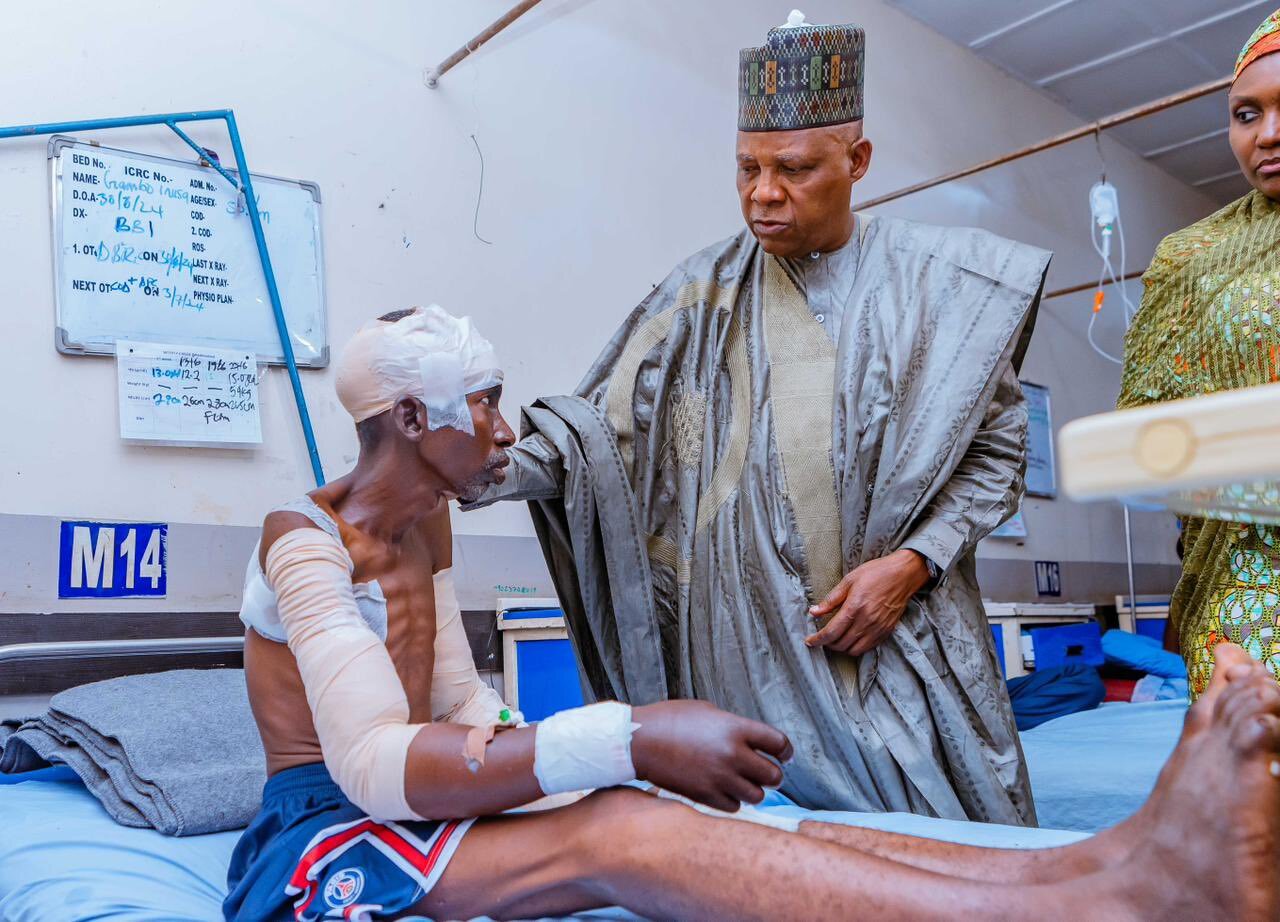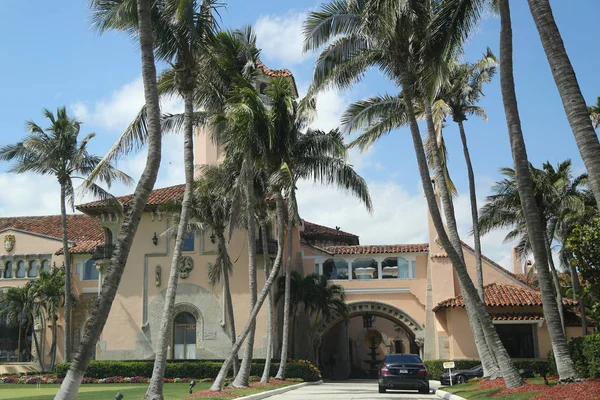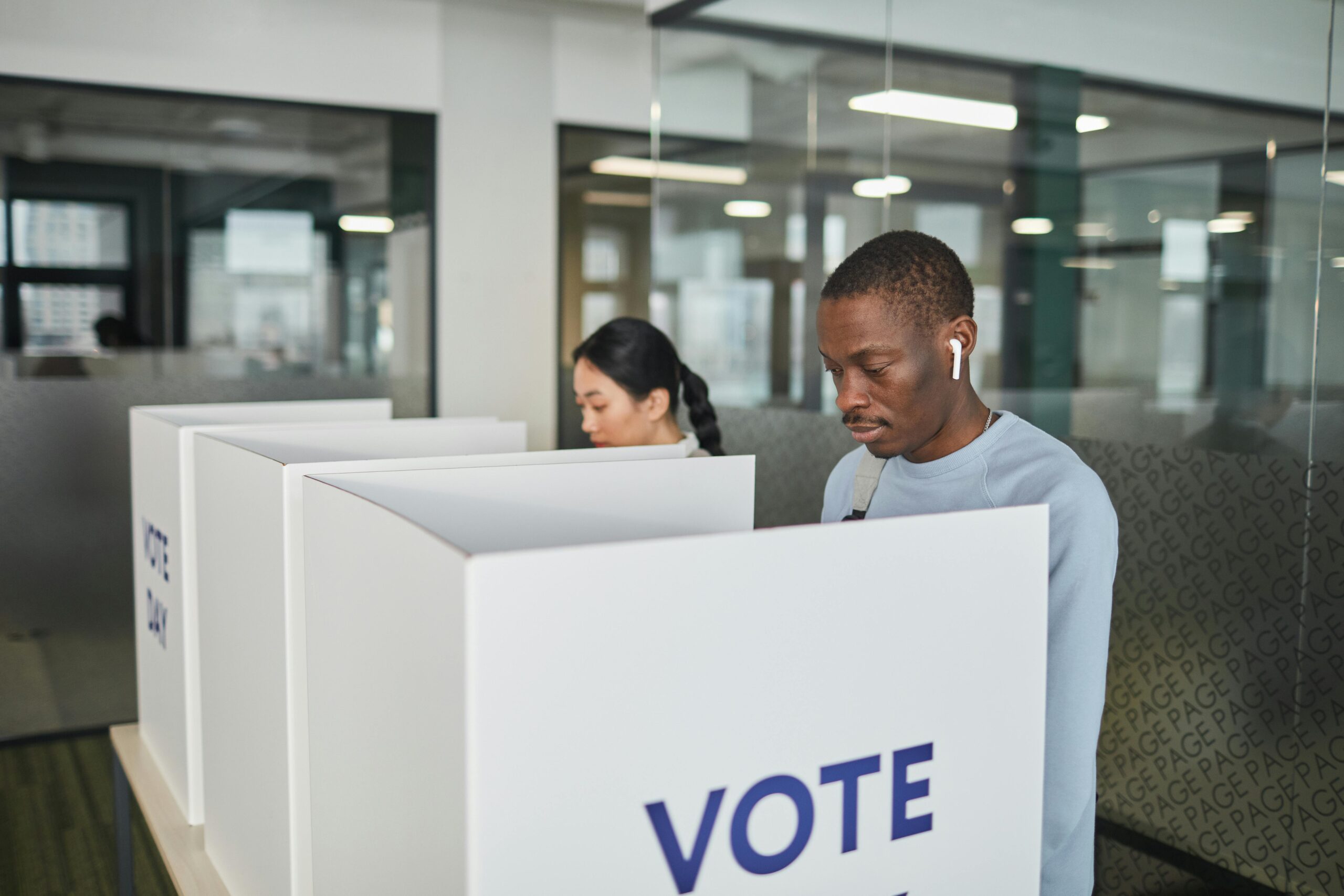Uncle Sam as Religious Crusader?
Religious persecution in Nigeria is a crime, not a cause for war.

There may be nothing more dangerous for America than President Donald Trump learning about another nation. The president who once campaigned for the Nobel Peace Prize might take America into another foolish war there.
Such as in Nigeria. The West African nation possesses the continent’s largest population and economy. The country is a major oil producer and has survived civil war and military dictatorship. However, it has long been troubled with corruption, instability, and violence. Almost equally divided between Christians and Muslims, Nigeria is home to virulent Islamist terrorist movements and suffers from a brutal rural/tribal conflict with sectarian overtones. Some Muslim-majority states impose shariah law.
The specter of religious conflict looms. In June, some 200 people were murdered in an attack on a largely Christian village. Yunusa Nmadu, head of Christian Solidarity Worldwide-Nigeria, warned that “The rising levels [of] violence and instability being endured by Nigerian civilians constitute a national emergency.” The violence could spread well beyond Nigeria itself. “We are at the precipice,” Nmadu worried. “If Nigeria goes into civil war, all of West Africa is gone.”
Trump recently noticed Nigeria’s plight, declaring on Truth Social:
[BLOCK]If the Nigerian Government continues to allow the killing of Christians, the U.S.A. will immediately stop all aid and assistance to Nigeria, and may very well go into that now disgraced country, ‘guns-a-blazing,’ to completely wipe out the Islamic Terrorists who are committing these horrible atrocities. I am hereby instructing our Department of War to prepare for possible action. If we attack, it will be fast, vicious, and sweet, just like the terrorist thugs attack our CHERISHED Christians! WARNING: THE NIGERIAN GOVERNMENT BETTER MOVE FAST![/BLOCK]
When questioned whether he might put boots on the ground, he responded, “Could be.”
Columnist Walter Russell Mead fantasized that Trump had a sophisticated rationale for action, hoping to “rally many sub-Saharan African Christians to America’s side,” play “the natural sympathy of many American Christians for their African fellow believers,” and “blunt some of the attacks from the groyper right against his support for Israel.” In fact, Trump was apparently moved by a Fox News report, which left him “immediately” angered. He evidently put little thought into the consequences of starting another war.
Secretary of Defense Pete Hegseth responded on X:
[BLOCK]The killing of innocent Christians in Nigeria—and anywhere—must end immediately. The Department of War is preparing for action. Either the Nigerian Government protects Christians, or we will kill the Islamic Terrorists who are committing these horrible atrocities.[/BLOCK]
Taken literally, this would require waging aggressive war against a volatile sovereign state on another continent without significant U.S. bases and allies. What could possibly go wrong?
Nigeria has a serious persecution problem, one that has long concerned me. The conflict is particularly intense in the so-called Middle Belt, which mixes Christians and Muslims. Members of all faiths suffer. Reported the United States Commission on International Religious Freedom in July:
[BLOCK]Religious communities are facing ongoing, systematic, and egregious violations of their ability to practice their faith freely. The Nigerian government’s enforcement of blasphemy laws and an increase in violent attacks by nonstate entities targeting religious communities constitute significant restrictions on freedom of religion or belief (FoRB). Twelve state governments and the federal government in Nigeria enforce blasphemy laws, prosecuting and imprisoning individuals perceived to have insulted religion. Those targeted include Christians, Muslims, traditional practitioners, and humanists. Furthermore, despite efforts to reduce violence by nonstate actors, the government is often slow to react to violent attacks … This violence severely restricts religious practice and observance by Christians, Muslims, and traditional religious communities across many Nigerian states.[/BLOCK]
With this record, Nigeria deserves the president’s designation as a Country of Particular Concern, which increases scrutiny of a nation’s policies and practices affecting people of faith. However, war should never be a first resort, ignoring the costs and risks for Americans and everyone else. The violence that devastates Nigeria, though horrendous, does not justify U.S. military intervention.
In a country of some 230 million, almost evenly divided religiously, the annual number of Christians killed in religious violence is estimated to run between 4,000 and 8,000; since 2009, roughly 50,000 Christians have been murdered. However, it is commonly believed that even more Muslims, mostly moderates targeted by jihadist extremists, have been killed, though some analysts doubt official casualty figures, which may underestimate the number and misstate the nature of deaths. Understandably, some beleaguered Christians favor U.S. involvement. One local leader told the Wall Street Journal, “We have been praying for a supernatural intervention to save the lives of our people. President Trump must make haste and carry out this military intervention.”
However, there is no genocide, let alone Christian genocide, in Nigeria. The estimated 8000 Nigerians killed so far this year are far too many, but threaten the extirpation of no people or faith. Violence has many causes and is not directed at the eradication of any one community. According to the Council on Foreign Relations, those killed in communal violence include “Muslims, Christians, soldiers, civilians and government officials, killed by terrorists, herdsmen, vigilantes, forest-dwelling kidnapping gangs, pirates off the coast, and Nigeria’s own overtaxed military.”
Moreover, if the Trump administration plans to begin righting the world’s wrongs, Americans are going to be fighting many wars. And even then, Nigeria would not be the country in which to start. Its toll, though terrible, pales compared to the recent human carnage in Yemen and Gaza—both sadly committed by U.S. allies with Washington’s support—or to Sudan’s horrific civil war. Brutal fighting continues in Myanmar and seemingly endless violence has again flared in the Democratic Republic of the Congo. The latter conflagration began in 1998 and raged into the 2000s, consuming an estimated 5.4 million lives. Observed George Rupp, head of the International Rescue Committee: “The conflict and its aftermath, in terms of fatalities, surpass any other since the second world war.”
Anyway, how would Washington end Nigeria’s internal conflicts? The country’s intermittent persecution and pervasive violence are much more complex than presented by the president’s “guns-a-blazing’” post, involving “insurgents, bandits, ethnic clashes and land disputes,” in the words of Miriam Adah of the Armed Conflict Location and Event Data project. The greatest threat is posed by Boko Haram and similar insurgent organizations, but they target moderate Muslims as well as Christians. Moreover, these insurgencies reflecte more than religious extremism, argued Nigerian writer Kola Tubosun. Instead, they “thrive on the poverty in the area, illiteracy, access to illegal mining opportunities, a distrust of a central government, and links to larger jihadi networks.”
A separate, growing problem has been violence by largely Fulani herdsmen against mostly Christian farmers, hundreds of whom have been killed so far this year. The religious difference fuels existing antagonisms and, according to USCIRF, “This competition often manifests along religious divides between Christians and Muslims,” with a particularly significant impact on the former. However, the Fulani also target their Muslim neighbors. The conflict is complex, neither a spontaneous rural dispute nor an organized Muslim jihad.
There is no panacea for these and other political and religious battles, which have eluded solution by a national government whose failures are well-documented. Even the traditional religious balance in politics has broken down. Nevertheless, outside pressure and international engagement have improved Abuja’s responsiveness. A human rights activist and former senator, Shehu Sani, says that President Bola Ahmed Tinubu, elected in 2023, has done more than his predecessors to confront the violence. USCIRF concluded that the Tinubu administration took “some steps to ensure greater accountability,” exhibited “a willingness … to discuss the country’s security situation more openly,” and achieved greater success in responding to violent attacks.
The result may still be disappointing, but American military intervention would create far more problems than it would solve. Threats, especially of regime change, would inhibit meaningful cooperation with the Abuja government. According to Tubosun, “Conspiracy theories abound, especially given Nigeria’s mineral reserves and China’s leveraging of rare earths against the United States.” Some Nigerians suspect that Trump’s latest pronouncements are retaliation for Nigeria’s refusal to accept deportees as part of the administration’s crackdown on illegal immigration. Others cite presumed opposition to the Tinubu government’s recent efforts to promote “economic independence.”
Worse, overriding Nigeria’s authority, challenging the country’s military, and/or killing Nigeria’s citizens would widen Nigeria’s internal fractures, inflaming the very conflicts that have torn the country apart. Darren Kerr of the University of California, San Diego warned: “To bring the weight of the United States solely on the Christian side and to frame things in a Muslim-Christian dimension is probably extremely unhelpful to both Christians and Muslims in Nigeria.” Sani fears sparking “a religious and ethnic crisis.” Already many largely Christian Igbos in southwest Nigeria, with serious grievances against Abuja, are pushing a separatist campaign that echoes the failed 1967 secession of Biafra. The U.S. intervening to stage a Christian crusade would also likely spread violence even further, across a continent already riven by sectarian feuds.
In any case, meddling in complicated disputes about which American policymakers know little usually turns out badly. Symbolic intervention would achieve little while entangling the U.S. in a failed effort, leaving Washington with public responsibility for the result. Limited operations with minimum objectives, such as rescuing a hostage, would be within Washington’s capabilities, but would satisfy no one. What the president is demanding would require a real war, which would not be “sweet,” as he suggested.
Such a campaign, especially if waged against Abuja’s wish, would involve organized insurgents, Islamist terrorists, tribal antagonists, rural combatants, and more. The battle lines, especially in the Middle Belt and oil-rich Niger Delta, would be murky. Distinguishing among ethnic and religious forces would be no mean feat. America’s past military misadventures in Africa, Asia, the Middle East, and Europe have resulted in abundant human carnage. Ayo Sogunro, an author and human rights lawyer, understandably worries that Americans “will fly in and continuously carpet bomb everywhere identified as a terrorist hideout, not distinguishing between innocent and criminals, or Christian from Muslim.”
Finally, turning Uncle Sam into a religious vigilante would violate Washington’s responsibility to its own people, especially those in uniform who would do the killing and dying. Humanitarian intervention offers an understandable emotional appeal. However, the world is extraordinarily complicated and beyond American control.
In any case, the U.S. government should not risk its own citizens’ lives and futures without something significant, even vital, being at stake for them. Other people’s lives are of equal moral worth. However, they are not the same responsibility of those called to America’s service. The U.S. military’s essential role is not global charity but national defense.
What is happening in Nigeria is terrible and warrants Washington’s attention. The U.S. should promote religious freedom and liberty of conscience, along with other basic human rights. However, Washington officials should recognize that their ability to force change half a world away is limited. Moreover, the U.S. should avoid getting entangled in other nations’ tempestuous politics and conflicts. Plunging America into an unjustified and unnecessary war in Nigeria would be the worst course, a cure worse than the disease. Unsatisfying though a more restrained policy might seem, it is the best path, most consistent with Washington’s responsibilities and America’s interests. Better to work with Nigeria’s government, which has welcomed U.S. assistance while rejecting violations of its sovereignty. The administration should press President Tinubu to more effectively address his nation’s internal problems, and cooperate toward that end, if possible, while leaving Americans and Nigerians free to work together to promote peace and development. Indeed, the White House should adopt the same approach with other nations around the world.
The post Uncle Sam as Religious Crusader? appeared first on The American Conservative.

